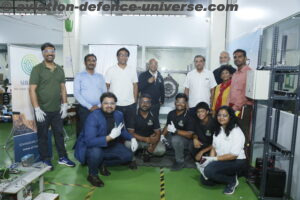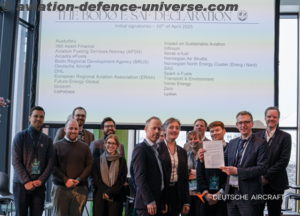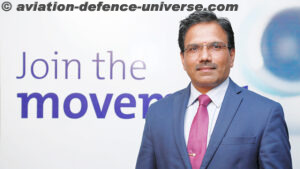Munich. 2 JULY 2018. According to the International Civil Aviation Organization (ICAO), a new record 4.1 billion passengers took to the sky onboard scheduled flights last year, which marked an increase of 7.1 percent compared with 2016. This growth poses new challenges for MTU Aero Engines. Germany’s leading engine manufacturer is making every effort to minimize fuel burn, carbon footprint and noise of aero engines, as detailed in the company’s sustainability report for the year 2017, which has just been released. It is for the sixth time now that MTU has prepared this publication on its sustainability performance.
“Clean Air Engine“ is MTU’s technology agenda that outlines what the company will do, in the period up to 2050, to make its contribution to a sustainable development of the environment and society. “For us, ‘Clean Air’ is more than just a slogan. Our objective is to cut aircraft engine CO2 emissions by up to 40 percent and noise emissions by as much as 65 percent. We are confident that we will reach these goals,” says MTU CEO Reiner Winkler. As things stand today, the innovative PW1000G-family geared turbofan engine already reduces CO2 emissions by 16 percent and noise by 40 percent compared with conventional turbofans and has entered revenue service with around 20 customers.
MTU faces up to the challenges posed by climate change and scarce resources not just when it comes to taking responsibility for its products, but along the entire value chain. “Clean Air Industrial Site is the name of our program launched to reduce CO2 emissions at our Munich facility by 25 percent. On our production shop floors, we make sure we have energy-efficient, low-emission processes in place, and are working to improve them continuously. With our state-of-the-art cogeneration plant, we now produce even more of the electricity we need without harming the climate,” says Lars Wagner, MTU Aero Engines Chief Operating Officer.
MTU’s corporate social responsibility is one of the tenets in its mission statement, the MTU Principles. In 2017, MTU supported almost 60 projects and organizations in communities near its company locations. A case in point is a public children’s playground (dubbed MTUlandia) built by MTU Aero Engines Polska employees in Rzeszów. In another initiative, employees of MTU Aero Engines North America volunteer to prepare a community meal once a month for people in need in and around East Hartford.
Since 2011, MTU has been reporting on its broad corporate social responsibility strategy and the progress made in an annual sustainability report. The sixth sustainability report with its roughly 100 pages refers to the year 2017 and has been prepared in accordance with the UN Global Compact and the Global Reporting Initiative (GRI G4) standards. It covers the activities of all fully consolidated companies of the MTU Group and supplements MTU’s first non-financial statement in the 2017 Annual Report.
































































































































